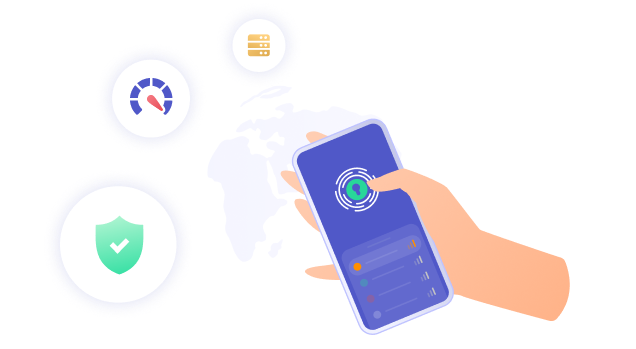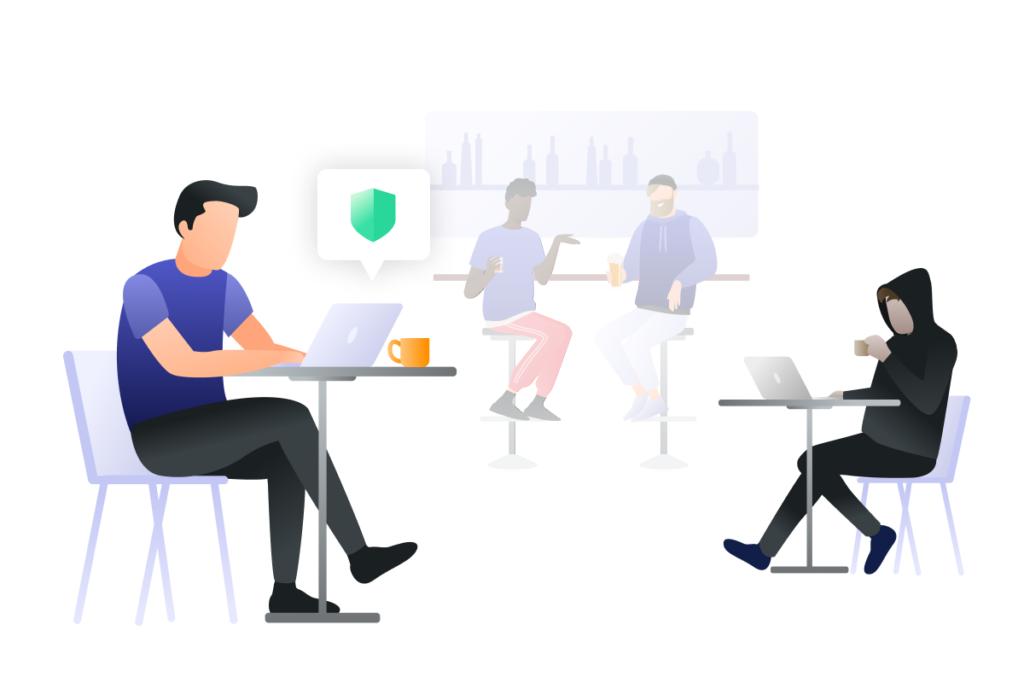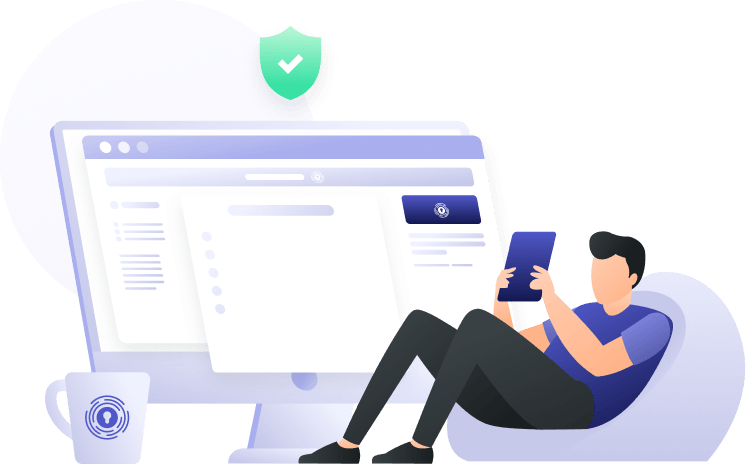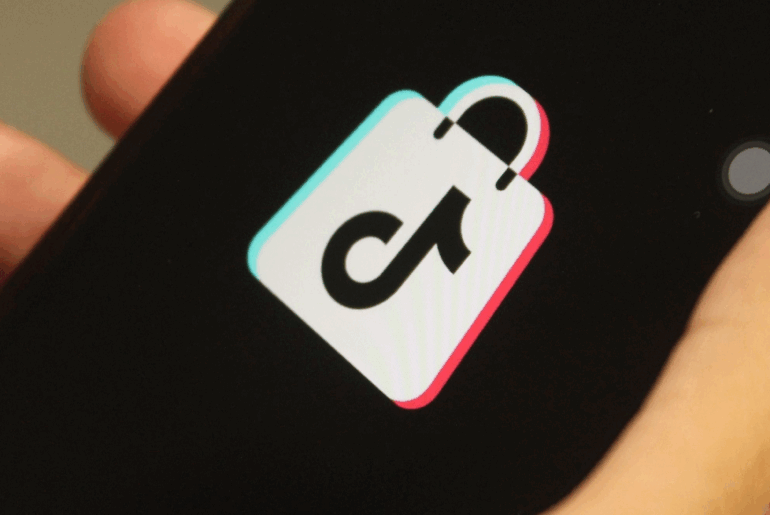With the drastic increase in cybercrime since last year, it’s natural to think that the targets have primarily been large company servers. But mobile devices are even more vulnerable to attacks than desktops. Mobile security has lagged behind network security improvements. As recently as 2018 there was a 54% increase in mobile malware variants. Mobile numbers since the beginning of the pandemic aren’t in yet, but they are likely to be significantly higher. Mobile threats are often overlooked, but they are a serious data security problem in 2021.
Let’s take a look at some of the biggest mobile threats to your privacy.
2021’s Biggest Mobile Threats
Data Phishing
Perhaps the most common cyberattacks for mobile right now are phishing attacks. The term “phishing” originates with hackers in the mid-90s and was one of the biggest threats back then, too. It was designed as a way of getting people to voluntarily violate their own privacy and security by posing as a network authority. Much like “fishing,” these hackers would pose as system administrators and ask dozens or hundreds of people for personal data. Occasionally, they would get a “bite.” The “ph” at the beginning likely refers to the common practice of at the time of “phone phreaking,” which was focused on finding security holes in telephone systems.
Phishing is one of the biggest threats in 2021 specifically because it’s ideally suited to mobile devices. The culture that has developed around mobile communication is about rapid response. Most people don’t think twice about clicking a link they get in a text message. They certainly aren’t considering that it might be malware stealing their mobile data.
As a result, people are losing their online privacy daily due to mobile security attacks that amount to asking them for their data.
Fortunately, threats like this are easily dealt with using nothing but improved awareness.

Dealing with Phishing Threats
The easiest way to protect your privacy in the face of phishing is to recognize that no legitimate company will ever ask for personal data through text or a messaging app. Your mobile phone actually makes it easier to protect your security because you can recognize unknown senders. Many have mobile security features like spam blocking and call screening to keep you from even seeing potential threats. Don’t be afraid to use these, but also don’t rely on them.
One trick that phishers like to use is to write out the URL to a specific link, but then have the link bring you somewhere else. This is harder to notice on mobile, but it can be an easy way for them to get malware onto your network. When you see a link in a text that you are not immediately sure of the origin, then the first thing you should do is try copying the link. Paste it into a text program and make sure it’s the same as the one written out. You can also copy the text of the link with your mobile phone or tablet and paste it into a browser to avoid these sorts of threats.
You need to be aware of potential threats to your Internet security. Avoiding phishing on your mobile devices is a good start.
WiFi Network Mobile Security Threats
WiFi Security Problems
Your mobile security is most vulnerable on public WiFi. There are so many ways that your data can be stolen when you connect to a free mobile network at a coffee shop or craft store. Your privacy is at serious risk, and malware can easily find its way onto your mobile device if you’re careless.
Part of what makes public WiFi such a security threat to mobile devices is that an SSID can be anything. “SSID” stands for “Service Set IDentifier” and, in normal speech, is the name of a network. Most public WiFi networks will use a simple name to identify themselves, like “coffeeshop-guest” or “nyc-public-wifi-237.” Unfortunately, this becomes a security nightmare for several reasons.
First of all, anybody can set up their own mobile hotspot in public. If I go to the above coffee shop and set up “coffeeshopwifi-guest” as my mobile hotspot name, then make it easy to log into that network, a non-zero number of people will connect to that one. Once they’re on my network, I can upload malware to their mobile device, collect any data that travels through my hotspot, or even undermine other mobile security measures they already have in place.
Even if you are careful to use only the approved WiFi network, not all security professionals are as dedicated to stopping mobile attacks like you. A legitimate network with security holes can be just as dangerous to your mobile device. Data leaks on shared WiFi can easily result in privacy breaches, especially in 2021 when it’s very easy to do.

Improve Your Mobile Security on WiFi
The easiest way to increase the security of your mobile devices is to make sure you’re connected to a legitimate network. This doesn’t take complex security software. Just ask an employee what the WiFi is. Nothing says that mobile security has to be complicated.
Next, we recommend that you always use a VPN while on a mobile device. Especially if you are using public WiFi. A virtual private network protects your data by encrypting all of it and sending it through an encrypted tunnel. That way, even if you connect to a fake WiFi, your mobile data will be unreadable. A VPN is one of the best, most cost-effective Internet security solutions available and your mobile security is at risk without one.
Malware (But Especially Ransomware)
Malware for Your Mobile Device
Hackers didn’t always write malware for mobile devices. They were considered “safe.” That is no longer the case.
A vital part of our online infrastructure is built just to handle mobile. We’re a generally “on-the-go” society, so mobile devices have been adapted to meet more of our needs. But, as we’ve mentioned before, convenience is the enemy of security. Mobile security hasn’t nearly kept up with the new ways that we use our phones, laptops, and tablets, leaving them vulnerable to malware.
In case you’re here for the first time (welcome!), “malware” is short for “malicious software” and is any program that is designed to specifically harm the target in some way. There are all sorts of different versions, from applications that spy on your online activity to ones that can steal money directly from your bank account. Security companies have worked incredibly hard to keep up with new variants, but they’re just so easy to make and deploy.
Perhaps the most newsworthy form of malware today is ransomware. This is a specific type that will either steal sensitive data or, more likely, encrypt it so that you’re unable to access your own files without paying a ransom. Once somebody has been the target of ransomware, there’s very little that security software can do to fix the problem. There are places on the Dark Web where you can buy ransomware kits for less than $100. It is one of the most pervasive security threats in 2021 and will only get worse. Mobile phones, through phishing, are often the easiest attack vector for ransomware.

Keep Your Phone Malware Free
Yes, it is even possible to protect your mobile devices from these malicious apps.
First, do everything mentioned above. Phishing and connecting to WiFi with poor security are the most common security holes for ransomware and related apps. Be smart about how you use your mobile device with a security-first mindset. Never “side-load” an app that you’re not 100% sure about. And always use a virtual private network.
Moreover, you should also make sure to keep your mobile devices up to date. Both hardware and software can introduce security exploits that hackers might take advantage of. Mobile OSes like Android and iOS usually plug security holes rapidly. But that only helps if you actually install the updates. And it goes without saying that any updates to your firmware or operating system will only come through official channels. Never trust an unsolicited email, text, or messaging link.
Protect Your Privacy While On the Go
Just because you’re on a mobile device doesn’t mean that you can’t be safe. While companies work on improving security, you can apply a little Security Hygiene to keep those threats at bay.
Don’t click links you don’t know, nor should you ever give out personal data in a text or social media message. Double-check the actual destination of all mobile links. Make sure that you’re connecting to a legitimate WiFi while you’re out in public and please use a VPN.
It doesn’t take a whole lot of effort to stay safe on your mobile devices. The key is to be aware of what you’re doing while using mobile devices. Add a few (verified and secure) software installations and you’ll have no issues keeping your private information safe. Even on mobile devices.
Download PrivadoVPN
Protect your privacy with a world-class VPN. Sign up for premium access to PrivadoVPN and get unlimited monthly data, access to 300+ servers from around the world, and up to 10 simultaneous connections. Get a top-rated VPN that can secure your privacy at home, at work, or on the go.
Sign up for PrivadoVPN today!




